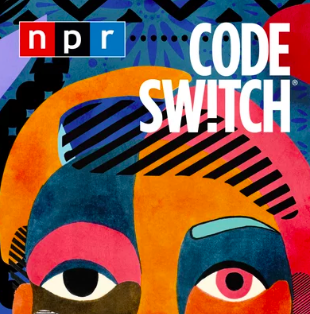Erupting into laughter while brushing my teeth, I sheepishly meet the gaze of my roommate as I cover my mouth to spare her the ungodly sight of my toothpaste-filled grin. My eyebrows furrowed in a gaze of thoughtful intensity, I stare down at my iron as I attempt to rid a shirt of wrinkles amid my roommate’s faraway calls to come back to earth.
Taken together, these scenarios seem like they have little in common — besides perhaps making me seem like a complete psychopath.
However, the unlikely shared factor between these two instances is podcasts. My spontaneous laughter can be attributed to the banter between the hosts of NPR’s Code Switch, and my look of introspective contemplation was in response to an emotional episode of Self Evident Media’s “Self Evident: Asian-American Stories.” Over the past year, listening to podcasts has become a staple of my daily routine, allowing me to engage with new perspectives as I complete activities like brushing my teeth or ironing my clothes.
Code Switch was the first podcast I really fell in love with, discovered during the social upheaval and racial unrest in early 2020. I immediately took to its charismatic co-hosts, Shereen Marisol Meraji and Gene Demby, as they facilitated conversations about race and its intersections with society, culture, history, politics and a variety of other topics, platforming marginalized voices in the process. Their injections of humor and vulnerability between profound discussions of race offered a refreshing change of pace from the often emotionally draining news cycle while still treating heavy topics with the respect and gravity they warranted.
Memorable episodes include “What’s in a ‘Karen,’” in which Meraji and Demby trace the modern trope of a “Karen,” an overbearing and often racist white woman who exploits her privilege to make unreasonable demands, to a long history of the idealization of white womanhood enabling elite white women to falsely accuse Black men of rape, especially in the American South.
Listening to episodes such as these unlocked a passion within me for learning about the historical roots of longstanding institutions that continue to be upheld today. I realized that there was such empowerment in education; expanding my understanding of the structural barriers designed contrary to the success of communities of color has helped me have more productive conversations about race with family members and friends as well as shatter my naïve conceptions of American society.
The critical worldview and foundational interest in race relations from a historical standpoint that I gained from Code Switch set me up perfectly for college, where I am continuing to develop this interest into a long-term dedication as the focus of my undergraduate studies with the history department. For all the ways it has strengthened my character and intellect, I am truly grateful for Code Switch and cannot emphatically express how worthwhile of a listen it is.
Now knowing I could effectively learn about these issues in this audible format, I sought out a podcast that specifically centered around my own identity. Serendipitously enough, I came across “Self Evident: Asian-American Stories,” a podcast dedicated to fostering a greater sense of what it means to be Asian American through the sharing of community narratives and dissection of pertinent issues such as racism and immigration.
One episode in particular, “The Talk We Were Supposed to Have,” deeply resonated with me even after it concluded. In it, Gabe, a Filipino American, talks to host Cathy Erway about his estrangement from the Filipino community due to his upbringing in a predominantly white area and the lack of emotional support within his household.
Listening to him describe experiences eerily similar to my own — from eating in silence with parents who only open up about themselves at random and extremely rare intervals to calling yourself the “white” Asian because you feel like you’re not “Asian enough” to truly belong in that community — I was left in a state of shock. Growing up with two reserved immigrant parents who chose to fully Americanize my brother and I at the expense of our Vietnamese culture, I knew exactly what he was talking about.
Never before had I felt so seen and understood, the identity crisis I’d struggled with my entire life suddenly lighter on my shoulders as I felt Gabe share some of the burden. Hearing his parallel experiences provided me with a sense of comfort that I wasn’t alone in my constant battle to accept my Asian identity.
It’s been difficult to reconnect to my Vietnamese heritage without my racial impostor syndrome rearing its ugly head, especially when I see my friends so effortlessly speak the language or bond over their favorite Vietnamese foods. But listening to stories from other Asian Americans like Gabe remind me that there isn’t one “right” way to be Asian, and I am again motivated to continue my efforts to learn more about Vietnamese culture and the AAPI community at large.
“Self Evident: Asian-American Stories” has become a vital outlet for me to explore my Asian American identity, feel more connected to the community and gain insight into AAPI history. I encourage you, whether you are in the AAPI community or not, to consider giving this podcast a listen, especially as the exponential increase in hate crimes against the AAPI community over the past year has shown there is an overwhelming lack when it comes to media coverage and understanding of AAPI issues.
However, even if you don’t start with either of my two personal favorites, I hope I’ve convinced you to try out a new podcast the next time you’re walking to class or cleaning your room. At the very least, I hope you start to consider the unlikely ways in which you can shape your perception of the world around you and form a greater understanding of your own identity.

